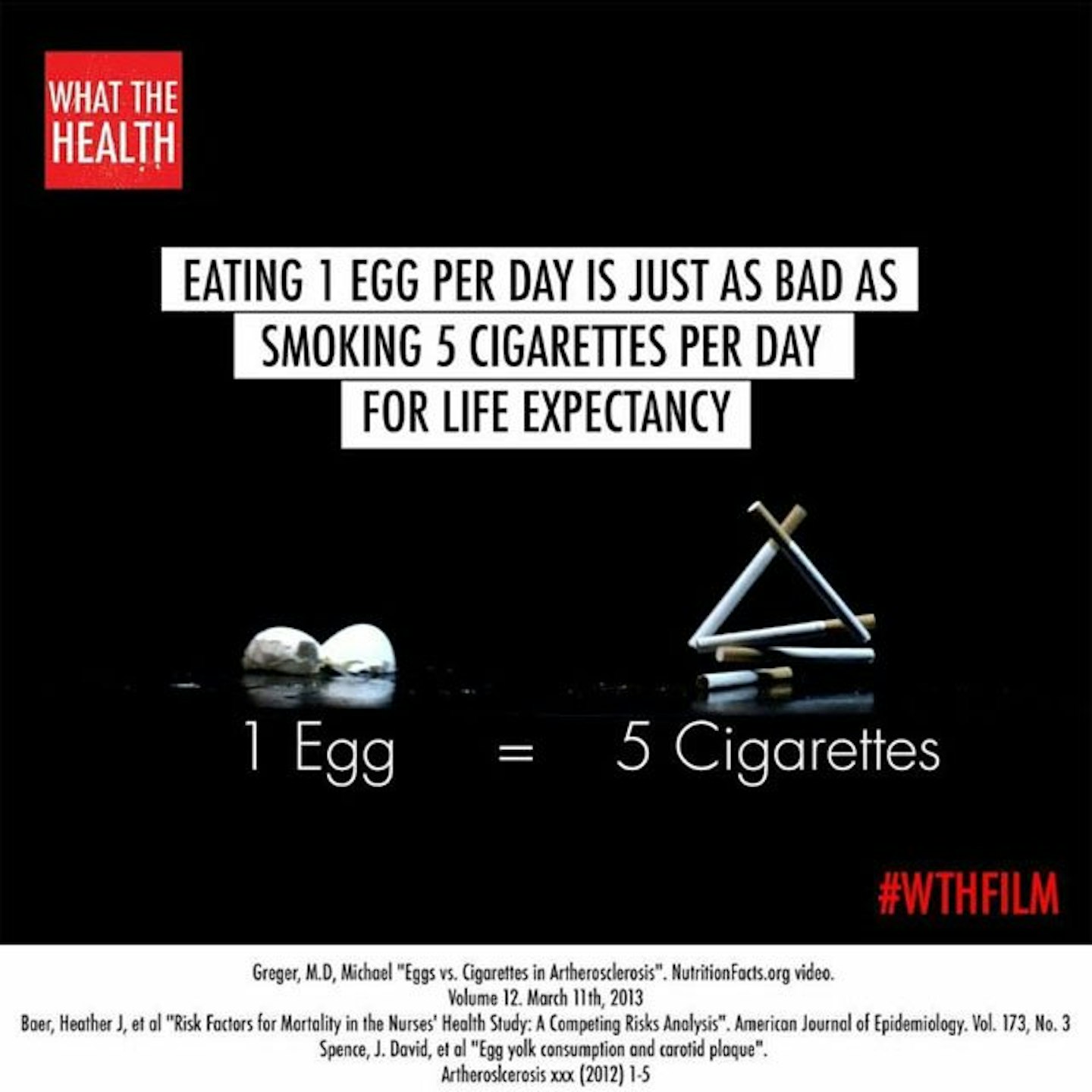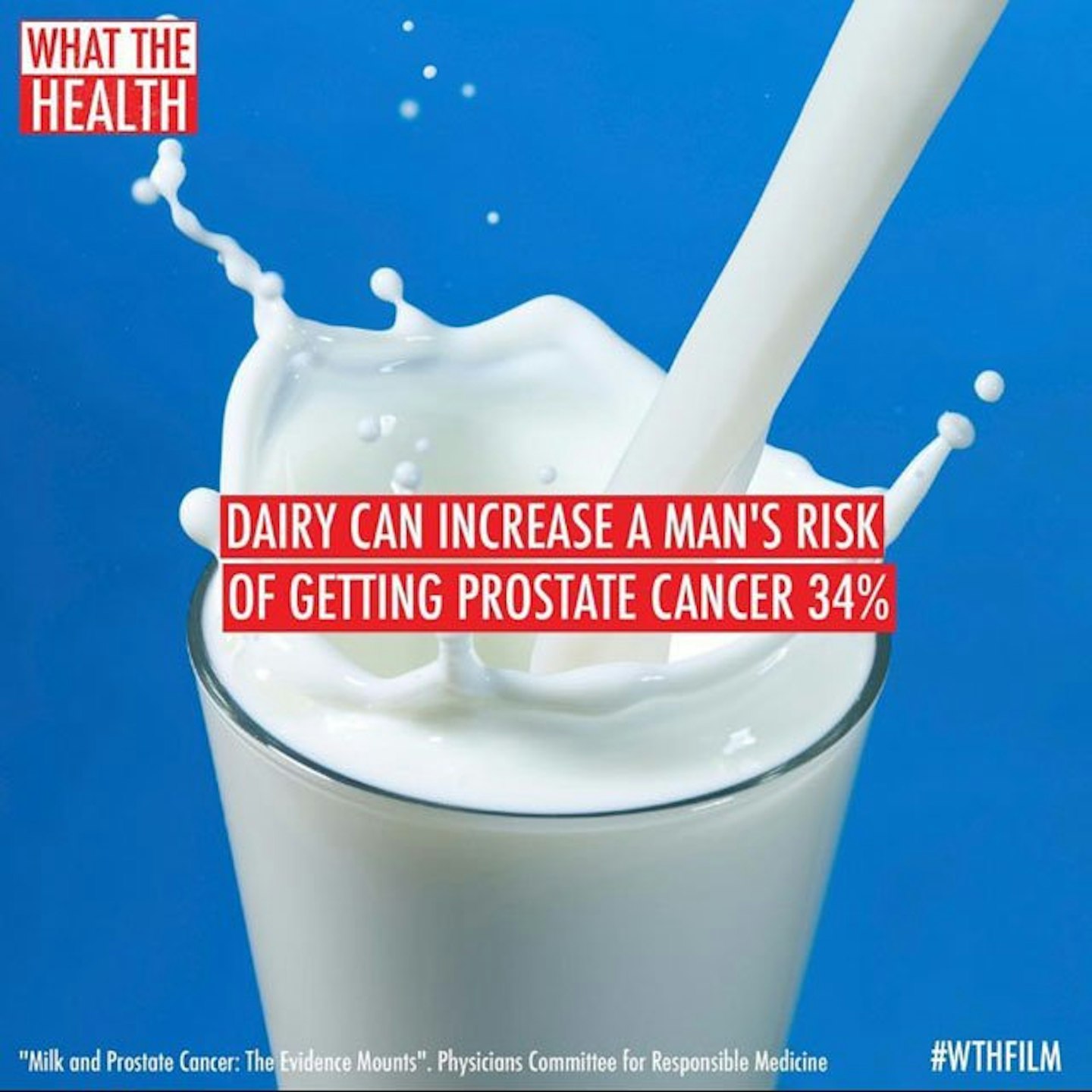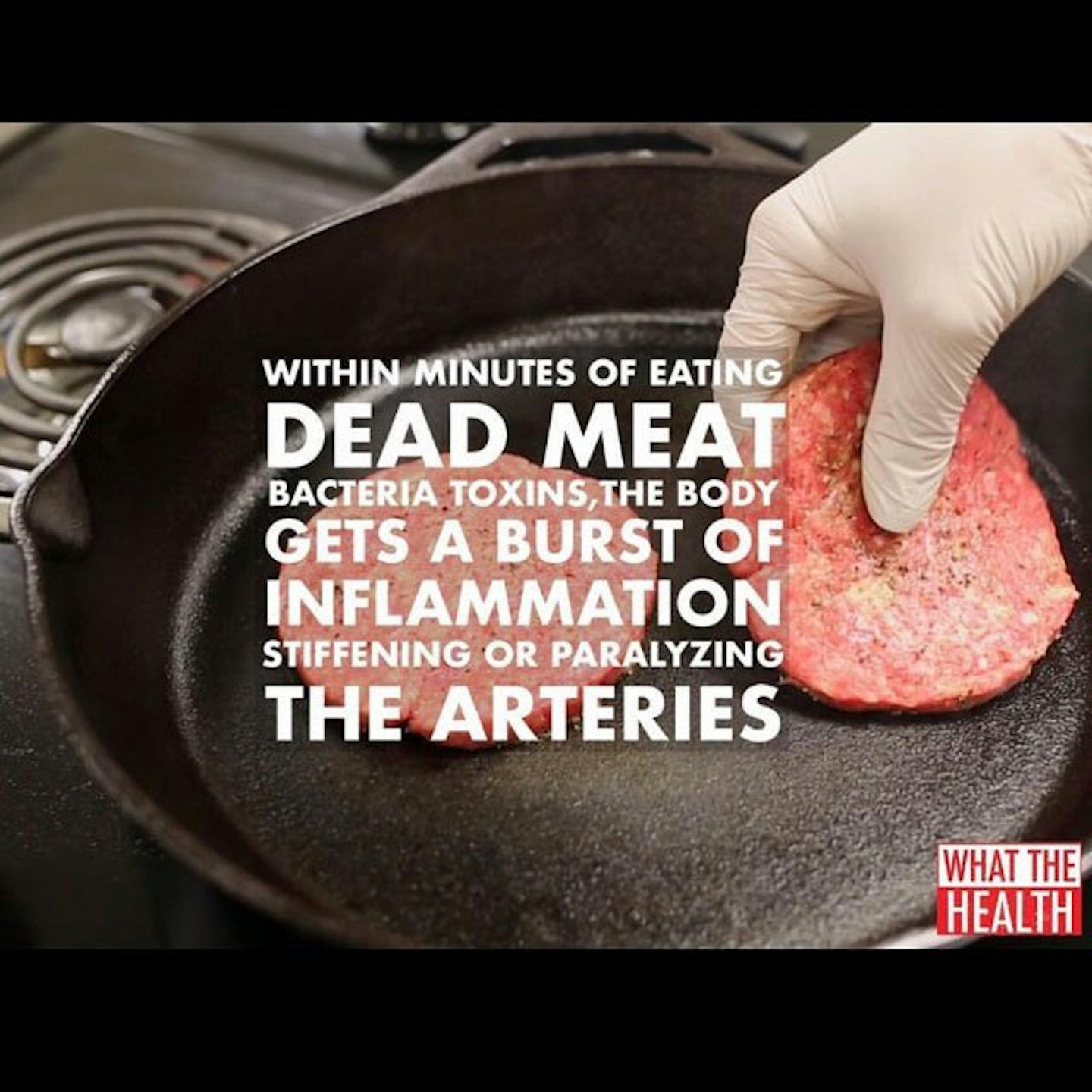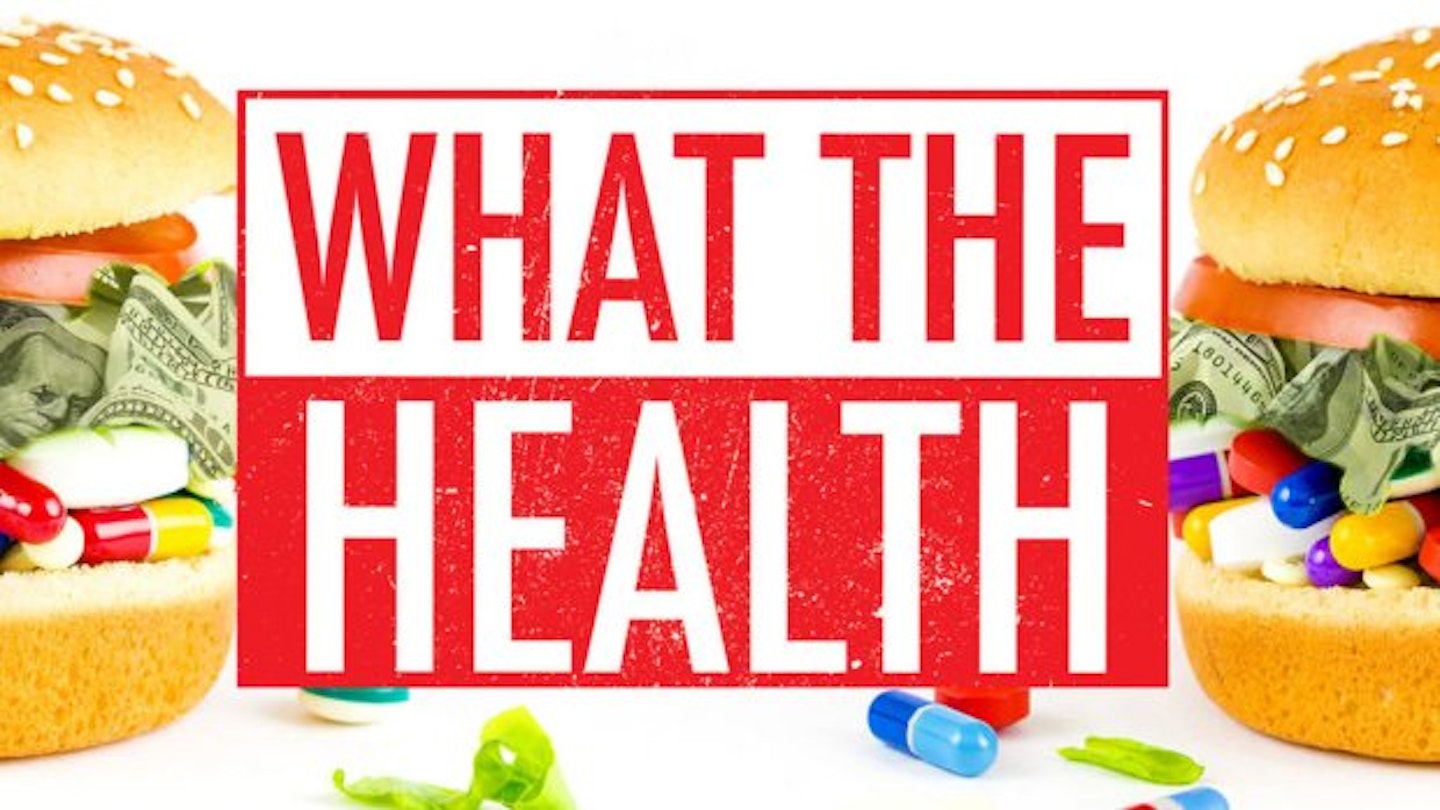This morning my Instagram stories feed featured a handful of people who said they were going vegan after watching the latest vegan smash hit, *What the Health *which is currently available on Netflix. The documentary comes from Kip Andersen and Keegan Kuhn, the makers of Cowspiracy, with Leonardo DiCaprio and Joaquin Phoenix (who is vegan) on board as executive producers.
There’s no doubt that watching What the Health is going to have you feeling a bit sick, rushing to your fridge to throw away all animal products and vowing to be plant based from now until forever. Like Cowspiracy it is effective, didactic and shocking. I made the mistake of watching it after eating a roast chicken dinner. Clearly, I learned nothing from watching Cowspiracy while eating a steak sandwich on holiday.
Veganism as a lifestyle choice has been gaining ground in recent years. There are three dominant reasons for choosing to go vegan, arguments I hear over and over again at parties and dinner parties. One is moral: you cannot, ethically, eat animals knowing the cruelty they often suffer. The second is environmental: as we learned from Cowspiracy the impact of animal farming on the environment is bad bad bad. The other, which has been becoming more and more common and happens to be the main argument of What the Health, is as the film’s name suggests, health-based. If you go vegan you will be healthier, if you don’t you’re going to die prematurely and painfully.
The moral and environmental lines of argument about eating animals and animal produce are pretty difficult to find fault with. There’s no doubt that mass farming is, on the whole, very unethical or that dairy farming, in particular, contributes to harmful greenhouse gases because cows produce loads of methane. And, while there’s no doubt that eating excessive meat and dairy is, like doing anything in excess, bad for you, the ‘being vegan is better for you’ argument which is presented by What the Health as fact is controversial and has sparked much debate. This is, obviously, what the film’s makers were hoping for so what should you believe?
Is What The Health true?
The film explicitly links a diet containing meat and dairy to, well, how do I put this delicately…certain death. If you eat meat and dairy, they argue, you’re more likely to suffer from diabetes, cancer and heart disease. One of the film’s stand out claims is that eating eggs is as bad for you as smoking five cigarettes.



The film’s website does source each of its claims. Two of the most cited are the Physicians Committee for Responsible Medicineand Nutritionfacts.org. It’s wort noting that both of these organisations promote veganism, they are not unbiased. Experts have responded to the film by pointing out that many of the claims it makes are contentious within the scientific community.
What The Health trailer:
Alexandra Freeman is the executive director of the Winton Centre for Risk and Evidence Communication at Cambridge University, has saidthat the egg claim is sourced from an ‘extremely controversial paper’. Additionally, Alice Howarth, a cancer researcher has said ‘while it is true that diet plays an important role in diseases including cancer and diabetes, the claims in this film vastly overstate and misrepresent the scientific understanding. What the Health overwhelms the viewer with scaremongering ‘facts’ which do not hold up to scientific investigation.’
The problem here is that it’s very easy to misrepresent science or distort the findings of medical studies to your own ends. Why? Because as much as we hold science up as an authority on pretty much everything, statistics are open to interpretation. For instance, the film makes the claim that one serving of processed meat a day increases a person’s risk of developing diabetes by 51 per cent. However, the two scientific papers used by the film’s producers to back this up are talking about what’s known as relative risk and not absolute risk; an absolute risk is your chance of developing a disease over a given time period while a relative risk is where two groups of people are compared. So, if you’re comparing a meat eater’s chances of developing a disease compared to a vegan, based on one study, that increased risk can look huge when in fact as an overall percentage it might not be quite so big.
This doesn't necessarily mean that it's not true that being vegan is better for you, it means that more comprehensive studies are needed. But that's not quite as headline-grabbing is it?
Is What The Health real?
Ultimately, there’s no doubt that the thinking on what we should and shouldn’t eat is much the same as it has been for the last decade: as much good quality produce in moderation as part of a balanced diet as you can afford to buy. There’s also no doubt that we should be mindful about what we consume and that some of the pro vegan arguments (like carbon footprint) are pretty water tight. But, equally, we can’t just blithely believe everything we’re told because it’s just not the case that all plant-based produce is better for you and/or the planet.
For instance, as The Debrief has previously reported: ‘growing almonds takes a lot of valuable water, and it takes around 100litres of water to make 100ml of almond milk and 5litres of water to grow one measly almond. Many almonds are grown in drought-hit areas such as California, so that water is extra-precious, and reports say that farmers are resorting to ever-more unscrupulous and damaging methods to drill down into the earth to get the water necessary to grow the almonds.’
Conversations about how we farm and what we eat are necessary but so is robust scientific evidence-based research.
All images by What The Health/Facebook
Like this? You might also be interested in:
**Follow Vicky on Twitter @Victoria_Spratt **
This article originally appeared on The Debrief.
